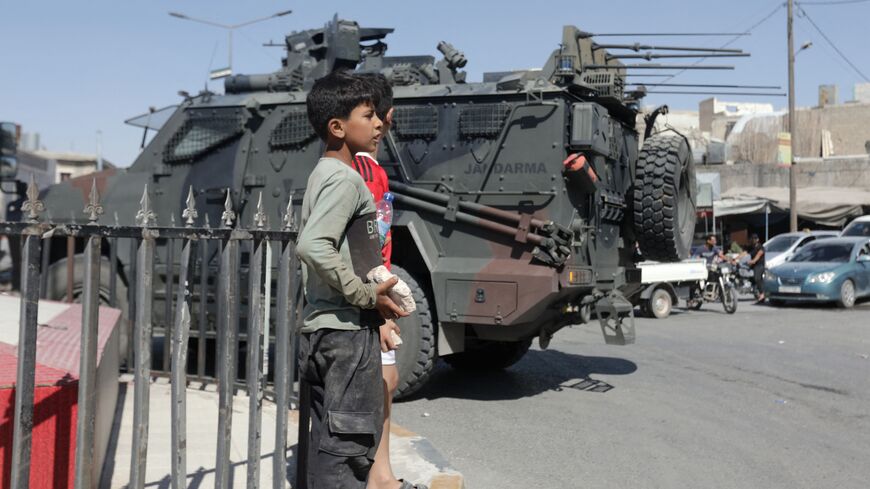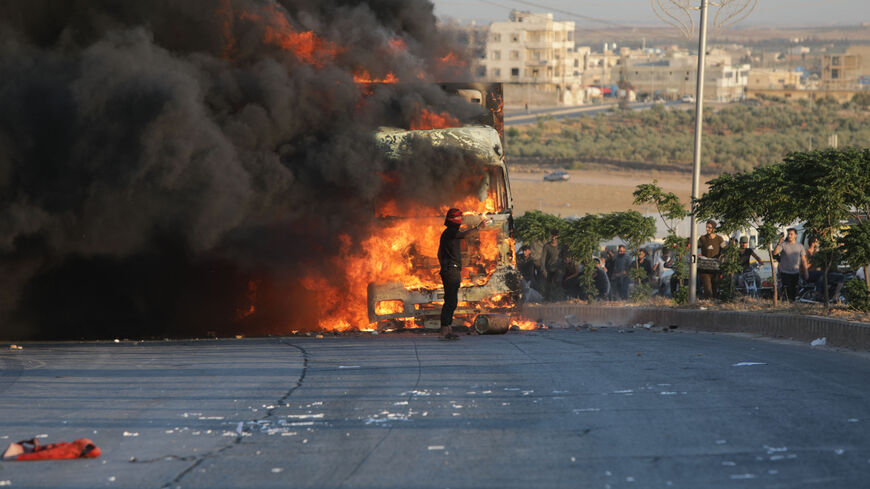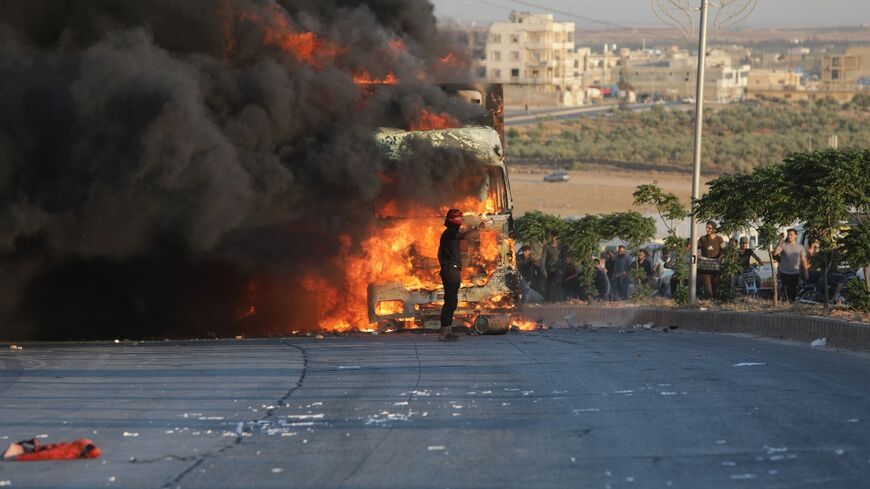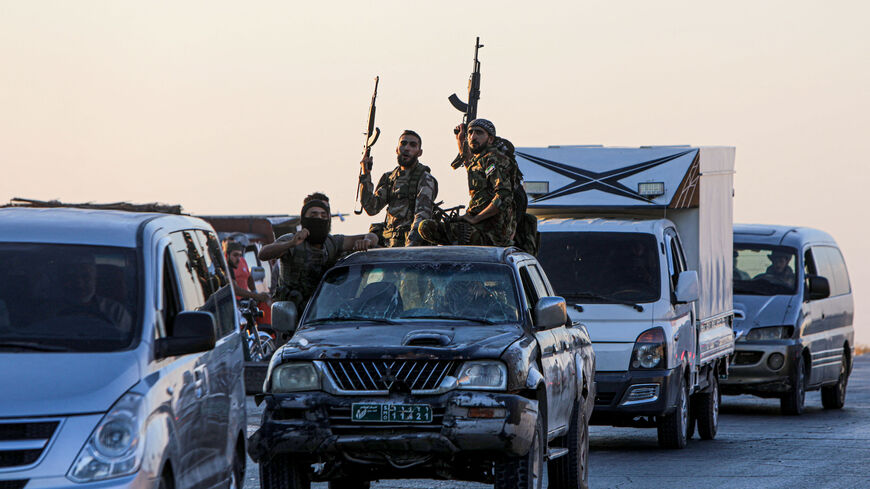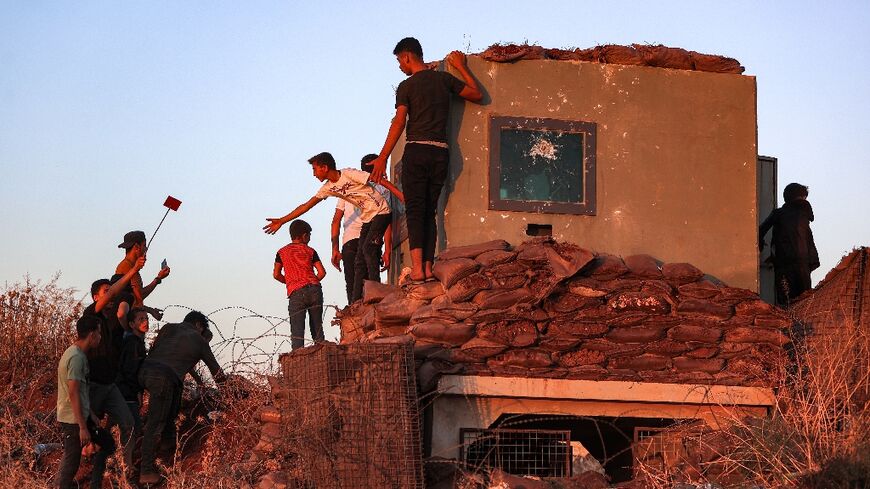4 dead in northern Syria protests following Turkey's anti-refugee riots
The riots targeting Syrian refugees in central Turkey have led to anti-Turkey protests in northern Syria.

ANKARA — Four people were killed in Northern Syria after armed protesters and clashing with Turkish forces that control the area, a war monitor said. The demonstrations are in response to riots against Syrian refugees in Turkey a day earlier.
"Four people were killed in exchanges of fire between protesters and guards stationed at Turkish positions," the Syrian Observatory for Human Rights said late on Monday.
The protests in Syria followed riots in central Turkey on Sunday and Monday.
The first wave of protests broke out in Turkey’s central Anatolian province of Kayseri on Sunday night following allegations that a Syrian man abused a minor. As hundreds took to the streets in at least three neighborhoods of the province, some among them attacked businesses and vehicles belonging to Syrians. Dozens of each were damaged during the riots, Selma Kan, a local journalist in Kayseri, told Al-Monitor.
Police used tear gas and water cannons to disperse the crowd shouting, “We don't want Syrians in our country.” Some rioters also raised cries against Turkish President Recep Tayyip Erdogan, chanting, “Erdogan resign!”
Kayseri is a Justice and Development Party (AKP) stronghold, with the party’s mayoral candidate winning the province by securing 38.61% of the vote in the March local elections. Erdogan got over 63% of the vote during the presidential race in May 2023. Of the more than three million Syrians who have fled to Turkey, roughly 80,000 of them live in Kayseri, according to official figures.
Turkish Interior Minister Ali Yerlikaya announced Monday that 67 people were detained for their involvement in the attacks and arson. He later added that authorities launched an investigation into more than 60 social media accounts for posting provocative messages.
The riots, which ended by 2 a.m. on Monday, according to Yerlikaya’s statement, have reignited the already pronounced anti-immigrant sentiment across Turkey. Thousands of social media users took to various platforms, posting hashtags that read, “I don’t want Syrians in my country.”
Kayseri’de Suriyelilere ait araçların tahrip edildiği ve yakıldığı görüntüler: pic.twitter.com/QGaSFkO3BP
— DarkWeb Haber (@darkwebhaber) June 30, 2024
The Syrian man accused of abusing a minor, who is also a Syrian, was arrested by a Turkish court.
Speaking later on Monday, Erdogan also slammed the riots as “unacceptable.”
“Regardless of who they are, setting fire to people’s houses and cars, committing vandalism and setting fires in the streets is unacceptable,” Erdogan told members of his ruling AKP in a televised speech in Ankara.
Counterprotests in Syria
As life went back to normal in Kayseri, counterprotests erupted in rebel-held areas of northern Syria. In Afrin, clashes between Turkish forces and armed protesters turned violent. Four demonstrators were killed and another 20 were wounded, the UK-based Syrian Observatory for Human Rights (SOHR) said. Al-Monitor couldn’t confirm the casualties independently. SOHR also reported anti-Turkey protests in Al-Bab, Azez and Jarablus.
The Istanbul-based Syrian opposition government in exile, led by rebels, issued a written statement after the violent protests in northern Syria condemning the actions of Turkish rioters in Kayseri. But it also called on the Syrians living under the rebel-held areas to exercise caution and common sense.
“We urge our people to act with restraint in order to prevent deterioration of the security in the liberated areas of Syria,” the statement said.
According to Omer Ozkizilcik, a non-resident fellow in the Atlantic Council who focuses on Syria, there has been a growing displeasure among Turkish-backed rebel groups over Erdogan’s messages to Syrian President Bashar al-Assad.
Erdogan said Friday that he was open to reestablishing ties with Assad, recalling how the two leaders used to have family meetings before the Syrian civil war derailed relations. Turkey has been supporting armed opposition groups fighting to oust Assad since the beginning of Syrian civil war.
Erdogan’s remarks came after Assad said he would welcome any initiative aiming to mend ties between Ankara and Damascus. Iraq has been mediating between Ankara and Damascus for the resumption of direct talks between high-level Turkish and Syrian officials. The Russian-mediated talks in 2022 ended without a breakthrough, and Syria’s rebel-held areas similarly saw anti-Turkey protests during the dialogue.
“The main reason for the anger there is [Erdogan’s] statement about the Assad regime,” Ozkizilcik told Al-Monitor. “These protests were going to take place anyway, but what happened in Kayseri accelerated the process a little."
According to Ozkizilcik, the anger in the rebel-held streets was a response to Erdogan’s remarks, his reference to family meetings between his and Assad’s family.
“If the president had used a more diplomatic language, there might not have been such a reaction on the ground,” he added.



